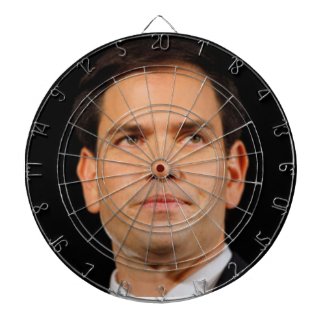
by Lucy Westcott
Gather round and listen, college kids: Marco Rubio wants to let private companies snap up a piece of your future salary as part of a plan to cut back on government-backed student loans.
In what sounds like either the first tentative steps into a libertarian dreamscape or dystopian nightmare (depending on your world view) Rubio on Wednesday introduced a bill to broaden the use of "income share agreements." An alternative to traditional student loans, ISAs allow private investors and organizations to put money towards a student’s college costs in exchange for a percentage of the student’s future earnings over a set number of years. It's like student stock, turning students' hopes for the future into human capital. And like stock, it could mean that investors either make or lose money.
Rubio hopes the plan can eat into the over $1 trillion in student debt now owed to the government. ISAs aren't meant to replace those traditional, federal government-backed loans, but instead supplement them, according to Wisconsin Rep. Tom Petri, who is offering similar legislation.
Speaking with Reuters on Tuesday, Rubio said that just like those who invest in a business idea, investors can now choose to put their money into a person “who basically says: ‘This is who I am. This is what my career goals are. This is what I've done so far. This is what I intend to major and graduate in. And in return, when I graduate, I will pay a percentage of my salary over a defined period of time in return for that investment.'" Rubio hopes that legislation would make them a “recognized investment vehicle” and encourage more investors to come forward, ultimately benefitting students in financial need.
Would Rubio, whose struggles with student debt are well publicized, have benefitted from ISAs? Rubio himself told CNBC that his proposed system won't benefit everyone, mainly rewarding those looking to work in "highly compensated" fields like engineering, science, and math. Rubio was a political science major at the University of Florida, and his public narrative is well-versed in his family’s difficult immigrant past, so it's unlikely that ISAs would have done much for him. Rubio's humble past would have been a risk for those looking for a good investment, which is precisely the problem with income share agreements. The free market is not one to dwell on sentiment, and in this case is likely to go for the rich kid with rich parents who, through the accident of their birth, already has some value. As the Financial Times points out in a piece on income share agreements among MBA graduates, some of the platform's detractors "see it as a 21st-century version of indentured servitude."
A similar model has already been floated with athletes. As Peter Lattman and Steve Eder at The New York Times reported last year, start-up Fantex Holdings offered the chance for investors to buy and sell interests in their favorite professional athletes, and presented Arian Foster, the Houston Texans running back, as their first initial public offering. In turn, investors would receive stock linked to Foster’s future earnings, including appearance fees and endorsements.
But unlike Foster, your typical college student is not an NFL player, and a post-graduation job doesn't simply fall into their lap, let alone one that promises mammoth earnings. Students are often lucky to get a job offer after graduation, and if investors are choosing their investments based on potential, surely certain colleges, majors, and students will be the obvious choices, leaving out those who actually need the help?
Rubio eventually paid off his $150,000 law school debt with the proceeds from his autobiography sales. Not everyone will be that lucky.

No comments:
Post a Comment